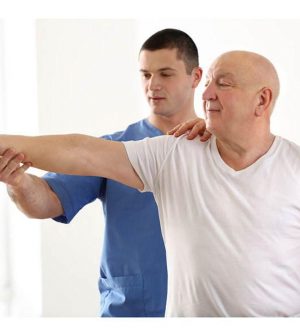- 8 Ways to Increase Dopamine Naturally
- 7 Best Breads for Maintaining Stable Blood Sugar
- Gelatin vs. Collagen: Which is Best for Skin, Nails, and Joints?
- The Long-Term Effects of Daily Turmeric Supplements on Liver Health
- Could Your Grocery Store Meat Be Causing Recurring UTIs?
- Are You Making This Expensive Thermostat Error This Winter?
- Recognizing the Signs of Hypothyroidism
- 10 Strategies to Overcome Insomnia
- Could Artificial Sweeteners Be Aging the Brain Faster?
- Techniques for Soothing Your Nervous System
Exercise Boosts Survival for People With Implanted Defibrillators

Just small amounts of exercise can benefit people with implanted heart defibrillators, new research shows.
An implantable cardioverter defibrillator (ICD) is a battery-powered device placed under the skin to detect abnormal heart rhythms and deliver an electric shock to restore a normal heartbeat.
The new study found that even slight increases in physical activity reduced the risk of hospitalization and early death after patients got an ICD. And that was true even if their fitness boost wasn’t from a formal rehabilitation program, according to findings published July 21 in the journal Circulation: Cardiovascular Quality and Outcomes.
“Cardiac rehabilitation programs offer patients a safe environment to increase physical activity after ICD implantation,” said study author Dr. Brett Atwater, director of electrophysiology at the Inova Heart and Vascular Institute in Fairfax, Va.
“Evidence has also shown cardiac rehab lessens the risk of additional hospitalization and death, but cardiac rehabilitation programs are underutilized, especially among women, the elderly, people from diverse racial and ethnic groups and those living in rural areas,” he said in a journal news release.
Atwater and his team examined data on nearly 42,000 Medicare patients (average age: 75) who got ICDs between 2014 and 2016.
Of those, 3% took part in a heart rehab program. During rehab, their physical activity rose by nearly 10 minutes a daily, compared to a minute-a-day drop off among patients not in rehab.
Those in a rehab program were 24% less likely to die within three years of getting their ICD than patients who were not in rehab.
The study also linked every 10 minutes of increased daily activity to a 1.1% reduction in death from all causes during that time span — whether patients were in a formal rehab program or not.
“Our study examined whether physical activity outside of a formal cardiac rehabilitation program could yield similar benefits, and we found it did,” Atwater said. “This suggests that additional options like home-based cardiac rehabilitation might help more patients realize the health benefits of increased physical activity.”
More information
The American Academy of Family Physicians has more on ICDs.
SOURCE: Circulation: Cardiovascular Quality and Outcomes, news release, July 21, 2021
Source: HealthDay
Copyright © 2026 HealthDay. All rights reserved.










